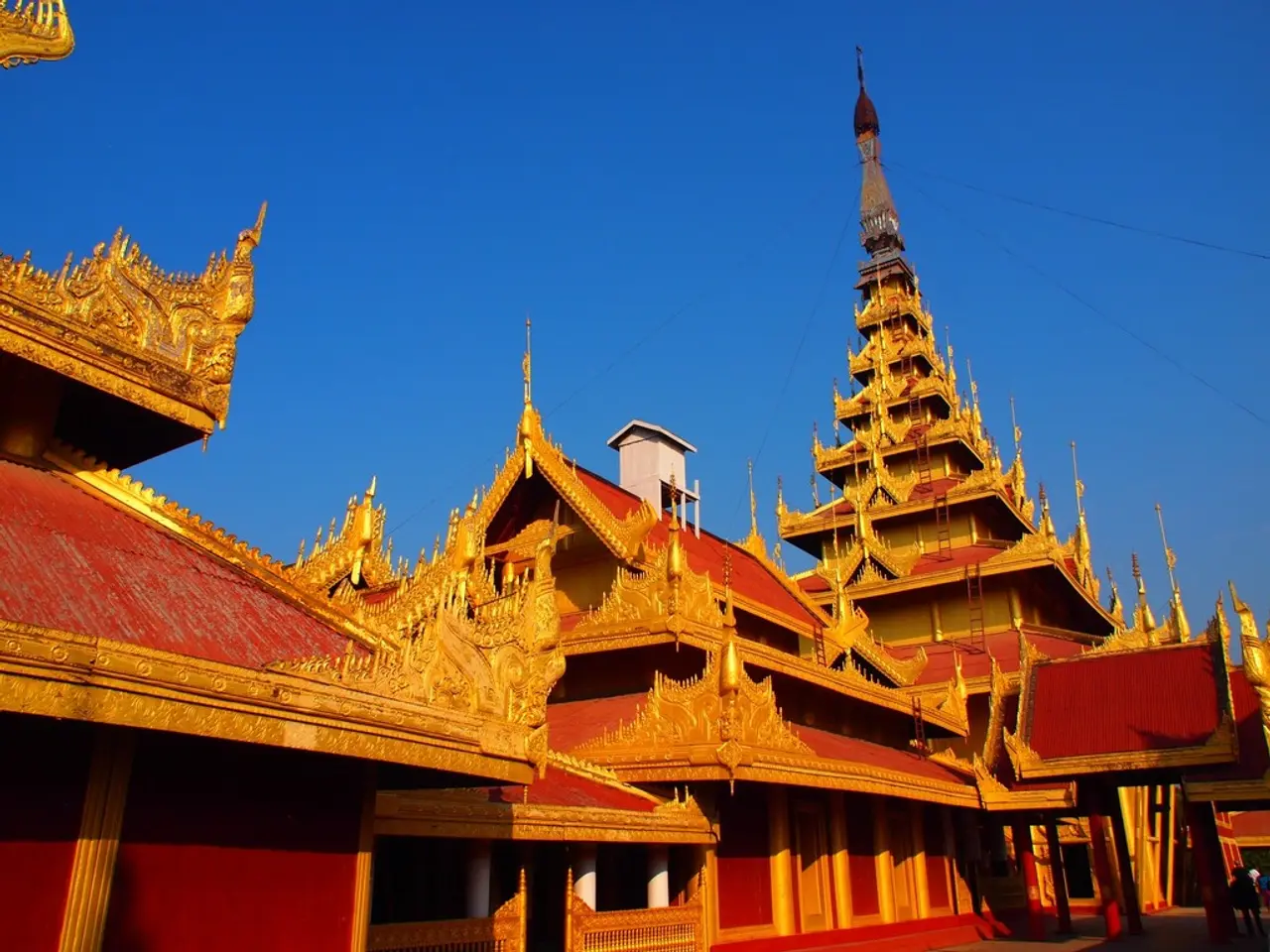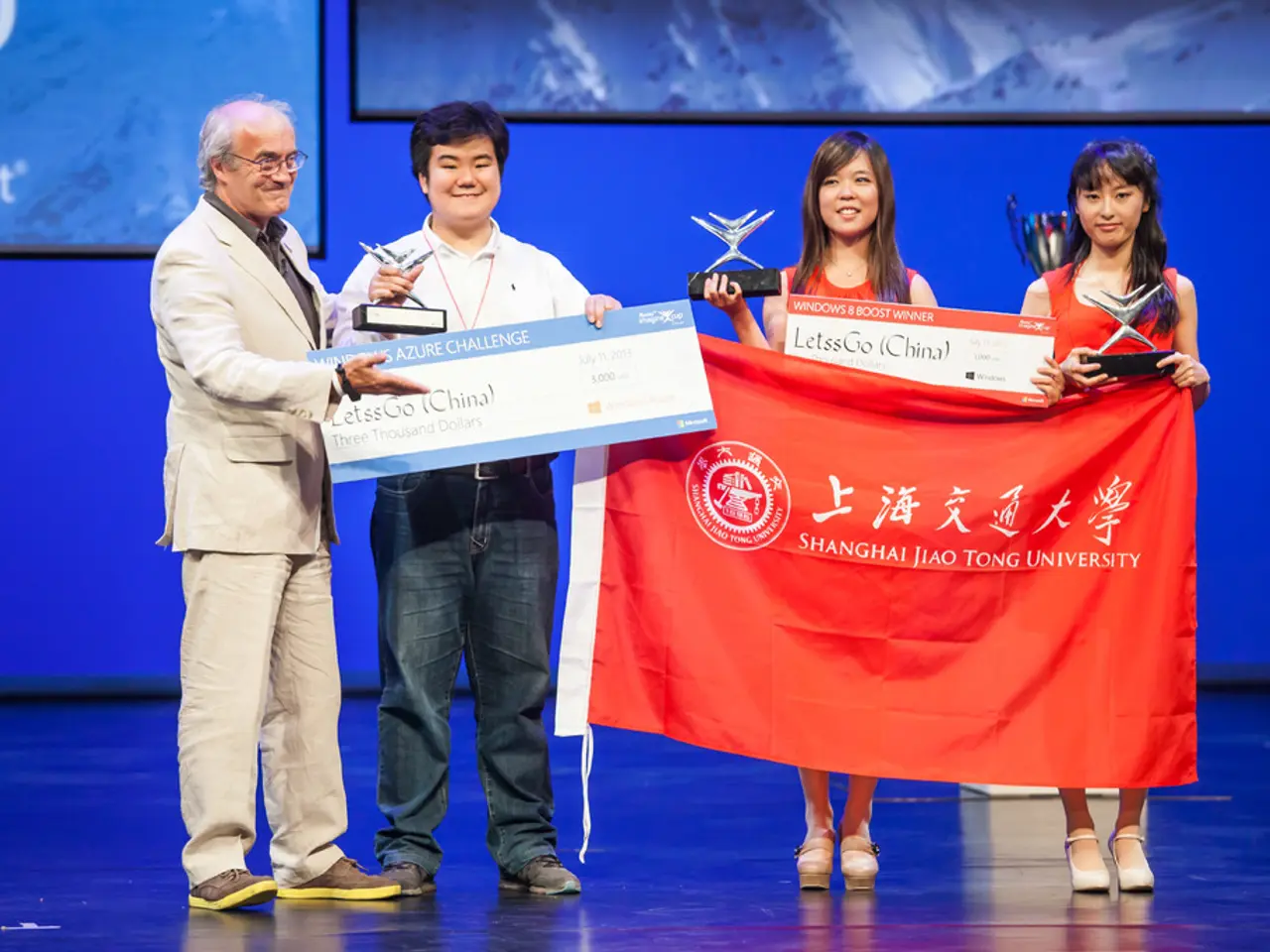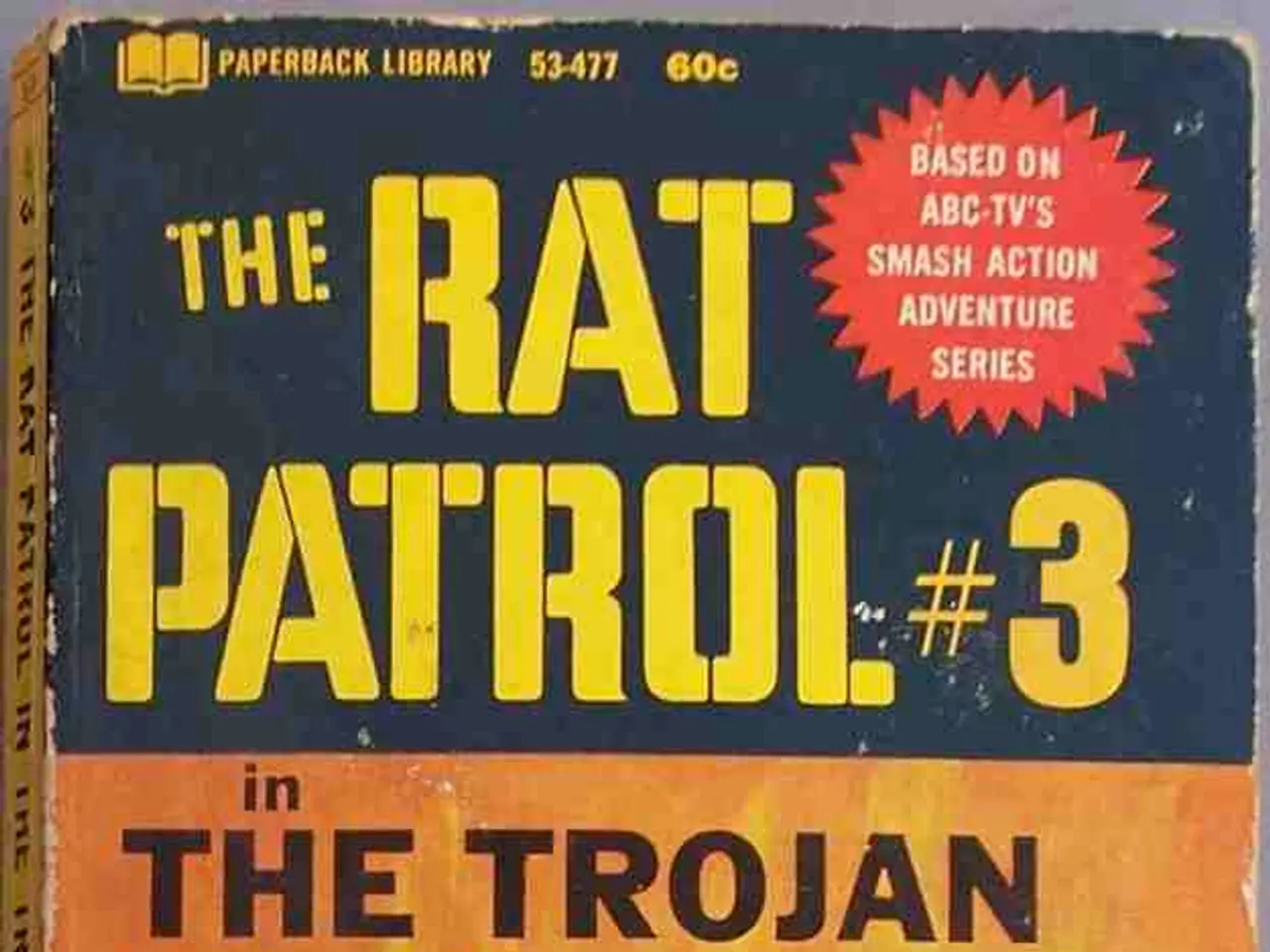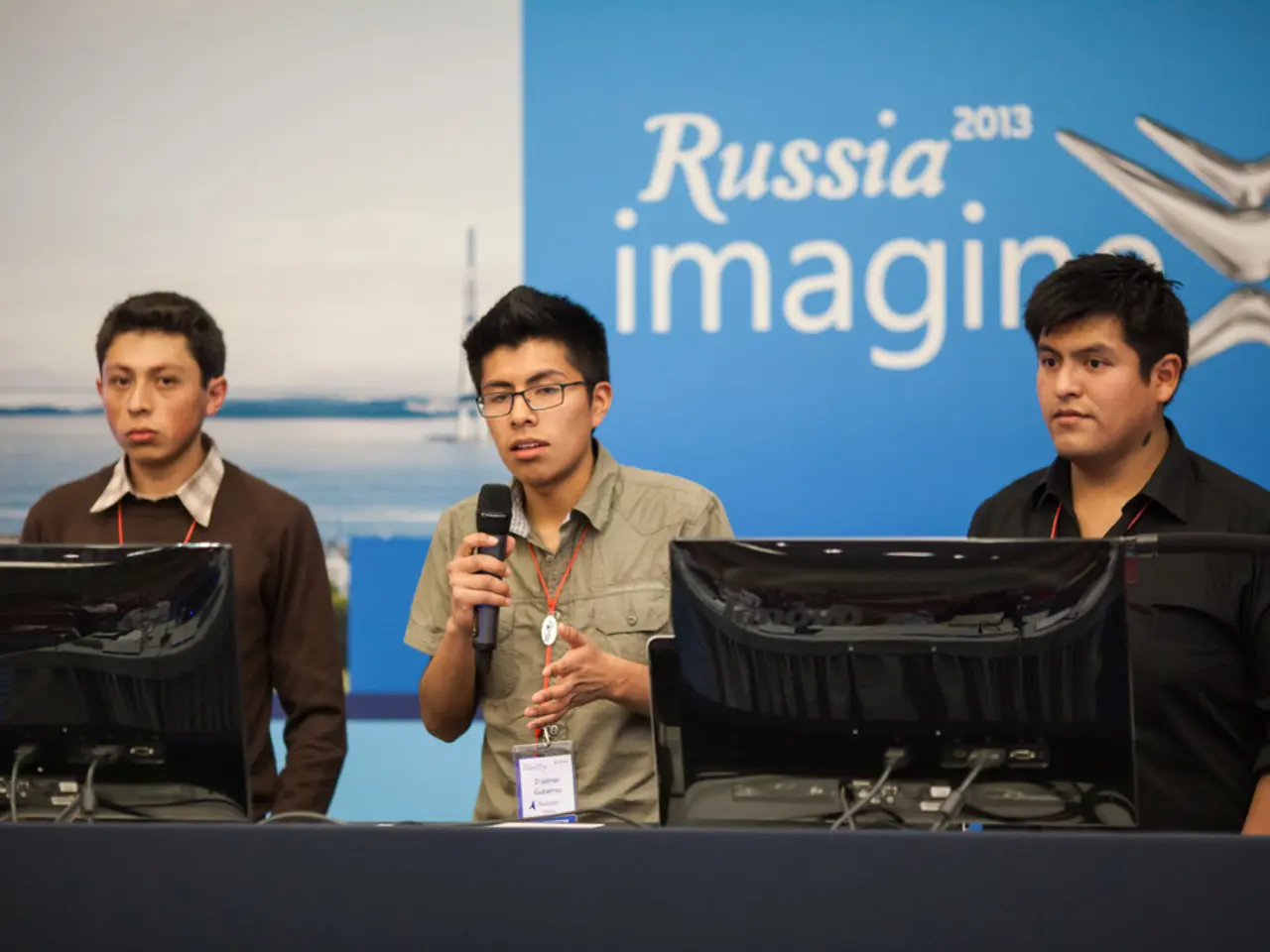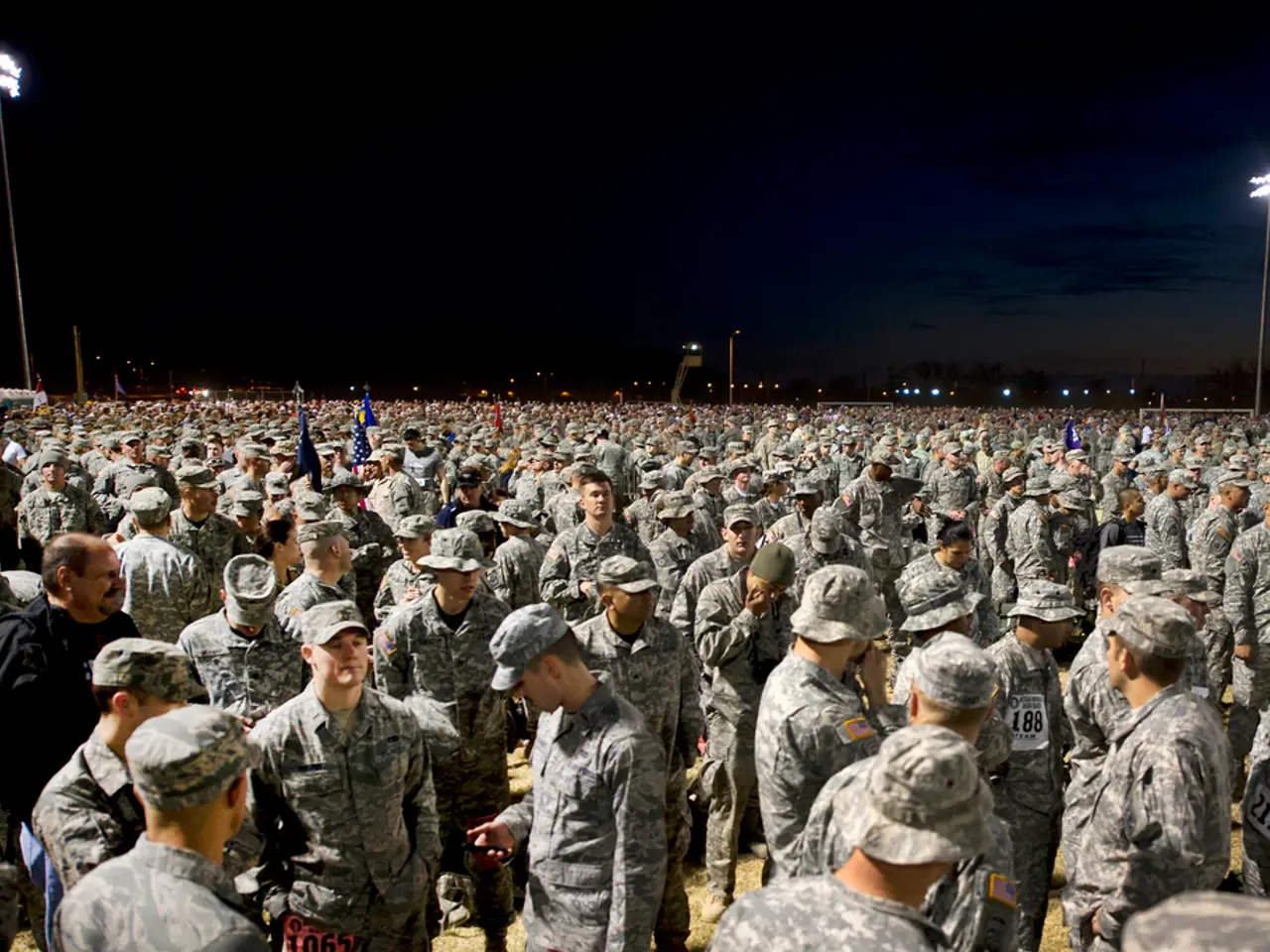Easing of covert sanctions by the US on Myanmar's military regime
In a surprising turn of events, the United States has lifted sanctions on several individuals and companies allied with Myanmar's military junta. This decision, made in July 2025, has raised eyebrows and sparked concerns, especially since it coincided with a letter from Myanmar's junta leader, General Min Aung Hlaing, praising then-President Donald Trump and requesting economic relief.
The sanctions were lifted from firms and individuals previously blacklisted for their direct ties to Myanmar's military regime. Notable among these are KT Services & Logistics, MCM Group, Suntac Technologies, and Tin Latt Min, who have been under scrutiny for their close associations with the junta.
The timing of this decision has led to speculation about the motivations behind the sanctions removal. The US Treasury Department has not provided an official explanation, leaving external observers to ponder political or economic calculations that may have influenced the decision.
Anna Roberts, executive director of the NGO Burma Campaign UK, has expressed concern about the lifting of sanctions against the junta and its supporters. She believes that the message sent by Donald Trump's policies is catastrophic and that now is not the time to scale back international action, but rather to maintain or even tighten sanctions.
The decision to lift sanctions comes at a time when Myanmar is embroiled in a civil war between the military and a pro-democracy movement made up of several ethnic minority groups. The military junta, led by General Min Aung Hlaing, seized power in Myanmar in February 2021, overthrowing the elected government of Nobel Peace Prize winner Aung San Suu Kyi.
The military junta has faced criticism from Human Rights Watch and other advocacy groups, who interpret the move as a possible major shift in US policy toward Myanmar's military regime. The lifting of sanctions without public rationale has been described as “shocking” and worrying.
Myanmar is a leading source of rare earth minerals, which are used in a wide variety of everyday and high-tech products. The logistical challenge of controlling these mines would be immense, as some are located in areas currently under the control of the Kachin Independence Army, one of the ethnic groups fighting against the junta.
Since 2021, Myanmar has doubled its exports of rare earths to neighboring China. The mines extracting these minerals are located in Kachin State, on the China-Myanmar border, and have increased to more than 300 last year from 180 in 2021.
In its latest report on Myanmar, Amnesty International notes that the internal armed conflict has escalated and the Prosecutor of the International Criminal Court has applied for an arrest warrant against Min Aung Hlaing for the deportation and persecution of the minority Rohingya population. Opposition groups have already announced their intention to boycott the elections.
US Deputy Secretary of the Treasury Michael Faulkender stated that individuals are regularly added and removed from the sanctions list "in the ordinary course of business". However, the timing and the lack of official explanation have fueled concerns about the implications for US policy on Myanmar's military rule.
- The decision to lift sanctions on firms and individuals allied with Myanmar's military junta, made in July 2025, has raised concerns about a possible major shift in US policy toward Myanmar's military regime, particularly given Myanmar's involvement in war-and-conflicts and human rights issues.
- myanmar's junta leader, General Min Aung Hlaing, has faced criticism from Human Rights Watch and other advocacy groups for his role in the ongoing internal conflict and the persecution of minority groups, such as the Rohingya.
- The logistical challenge of controlling Myanmar's rare earth mines, which are used in everyday and high-tech products and many of which are located in areas currently under the control of opposition groups, could prove to be a significant hurdle for businesses interested in operating in the country.
- In light of the lifting of sanctions on Myanmar's military regime and the ongoing internal armed conflict, opposition groups have already announced their intention to boycott the elections, indicating a continuation of general-news surrounding political and policy-and-legislation discussions in Myanmar.
